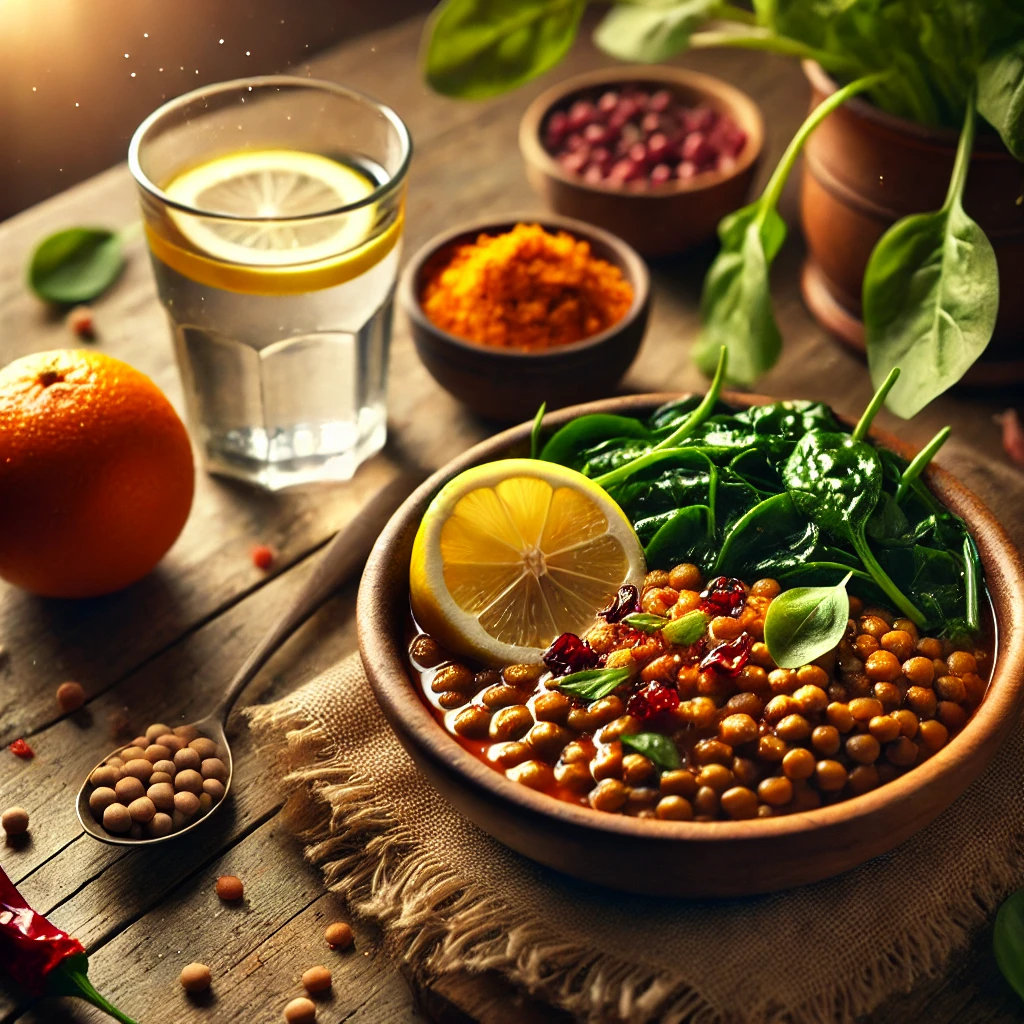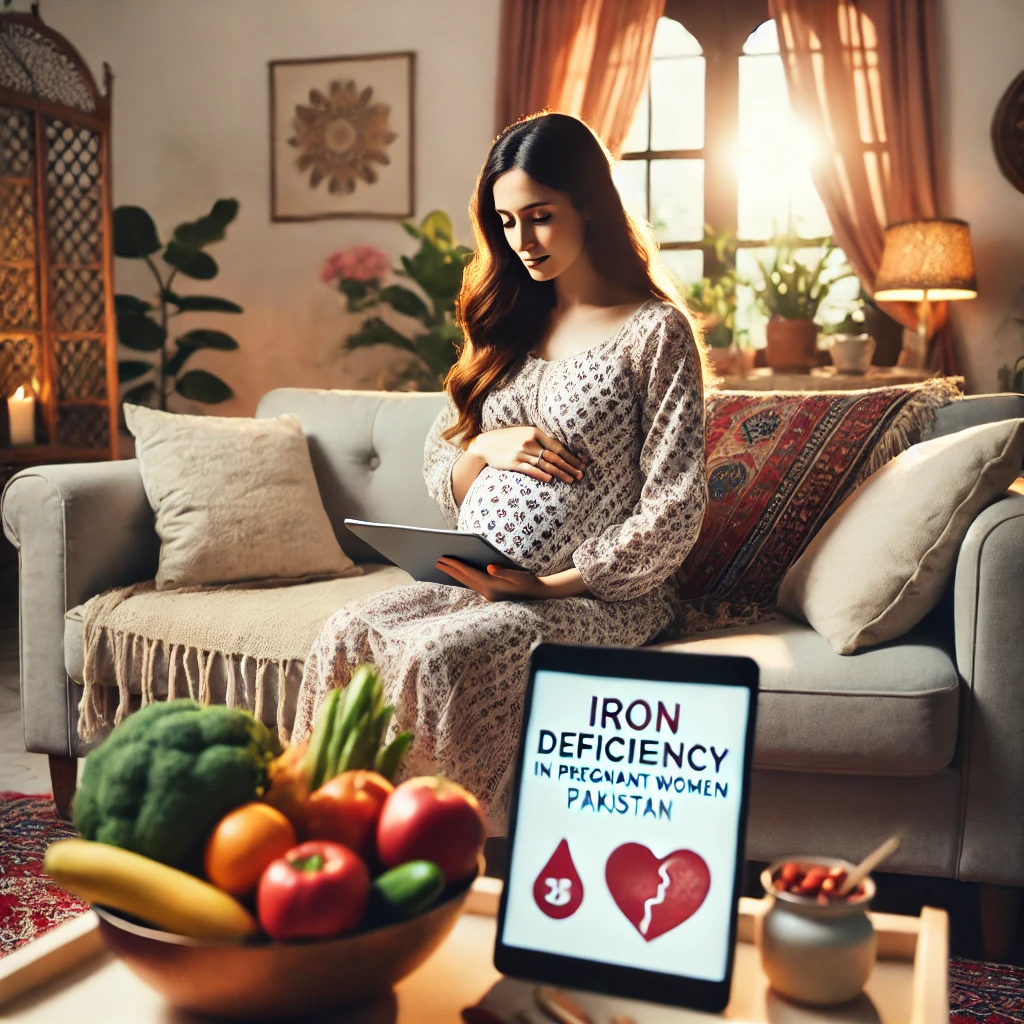Pregnancy is a transformative journey, filled with joy and challenges. One of the critical aspects of your health during this time is ensuring you have enough iron in your body to support both your needs and your baby’s development. If you’re wondering whether iron deficiency is common during pregnancy in Pakistan, the short answer is yes—and it’s something you should be aware of to keep yourself and your baby healthy.
In this blog, we’ll explore why iron deficiency is prevalent, how it affects you and your baby, and practical steps you can take to manage it.
Table of Contents
Why Do You Need More Iron During Pregnancy?
During pregnancy, your blood volume increases by up to 50%, which means your body needs more iron to produce hemoglobin. This is crucial for transporting oxygen to your organs and to your baby. Without enough iron, you may develop iron deficiency anemia (IDA), which can cause extreme fatigue, weakened immunity, and even complications like preterm delivery or low birth weight.
Why Is Iron Deficiency So Common in Pakistan?
Iron deficiency is a widespread issue among pregnant women in Pakistan, and several factors contribute to this:
1. Limited Awareness
Many women don’t realize they need extra iron during pregnancy or understand the signs of deficiency. Unfortunately, the importance of nutrition is often overlooked in the hustle of daily life.
2. Poor Dietary Habits
Traditional Pakistani diets often rely on carbohydrate-heavy meals, which don’t always include enough iron-rich foods. For example, eating chapati or rice without pairing them with vegetables, legumes, or protein limits your iron intake.
3. Cultural Norms
Cultural practices in Pakistan often influence how pregnant women manage their diet and health, sometimes leading to iron deficiency. In many households, women eat last, leaving them with smaller or less nutritious portions. This can be especially problematic during pregnancy when nutritional needs are higher. Myths around certain foods, like avoiding spinach or red meat, further restrict access to iron-rich options.
4. Financial Constraints
The cost of iron supplements or iron-rich foods like red meat and fish can be a barrier, especially for families with limited income.
5. High Prevalence of Infections
Infections like hookworm, common in Pakistan, can also deplete your body’s iron levels.
According to the World Health Organization (WHO), anemia affects over 50% of pregnant women in Pakistan, with iron deficiency being the leading cause.
What Are the Symptoms of Iron Deficiency?
If you’re pregnant and feeling persistently tired or experiencing any of the following symptoms, iron deficiency could be the culprit:
- Extreme fatigue or weakness
- Pale skin and nails
- Dizziness or lightheadedness
- Shortness of breath
- Irregular heartbeat
- Cravings for non-food substances like clay or ice (pica)
It’s essential to talk to your doctor if you notice these symptoms. A simple blood test can confirm whether you’re iron deficient.
How Can You Prevent or Manage Iron Deficiency During Pregnancy?
The good news is that you can take steps to address iron deficiency through a combination of diet, supplements, and lifestyle changes.
1. Eat Iron-Rich Foods
Include both heme and non-heme iron sources in your diet:
- Heme Iron (easily absorbed): Red meat, chicken, and fish.
- Non-Heme Iron (needs vitamin C for better absorption): Lentils (daal), beans, spinach (paalak), and dried fruits like apricots (khubani).
2. Pair Iron with Vitamin C
Vitamin C helps your body absorb iron more effectively. Add citrus fruits, tomatoes, or guava (amrood) to your meals. For example, squeeze lemon juice over your spinach curry for a nutrient boost.

3. Avoid Iron Blockers
Certain foods and drinks can hinder iron absorption, such as tea, coffee, and calcium-rich foods. Avoid these immediately before or after meals.
4. Take Supplements If Needed
Your doctor might recommend iron supplements if your levels are too low. Commonly prescribed options in Pakistan include Fefol and Ferose. Always follow your doctor’s dosage instructions, as excess iron can cause side effects like nausea or constipation.
5. Attend Regular Checkups
Routine prenatal checkups are crucial for detecting and addressing iron deficiency early. Blood tests during these visits help monitor hemoglobin levels, and doctors can recommend dietary changes or supplements if needed.
What are the Risks of Untreated Iron Deficiency?
If left unaddressed, iron deficiency can pose serious risks:
- For You: Increased fatigue, heart problems, or complications during delivery.
- For Your Baby: Low birth weight, preterm birth, or developmental delays.
Addressing iron deficiency isn’t just about feeling better during pregnancy—it’s about giving your baby the healthiest start possible.
FAQs About Iron Deficiency During Pregnancy
Q: How do I know if I need iron supplements?
A: Your doctor will determine this based on blood tests. Self-medicating isn’t recommended, as too much iron can be harmful.
Q: Are there any affordable ways to add iron to my diet?
A: Yes! Lentils, spinach, and dried fruits like raisins are cost-effective options. Pair these with vitamin C-rich foods for better absorption.
Q: Is iron deficiency more common in rural or urban areas of Pakistan?
A: It’s common in both, but rural areas may face additional challenges due to limited access to healthcare and education about nutrition.
Iron deficiency during pregnancy is a common but preventable issue in Pakistan. By understanding its causes and taking proactive steps—like eating iron-rich foods, avoiding inhibitors, and consulting your doctor—you can ensure a healthier pregnancy for you and your baby.
